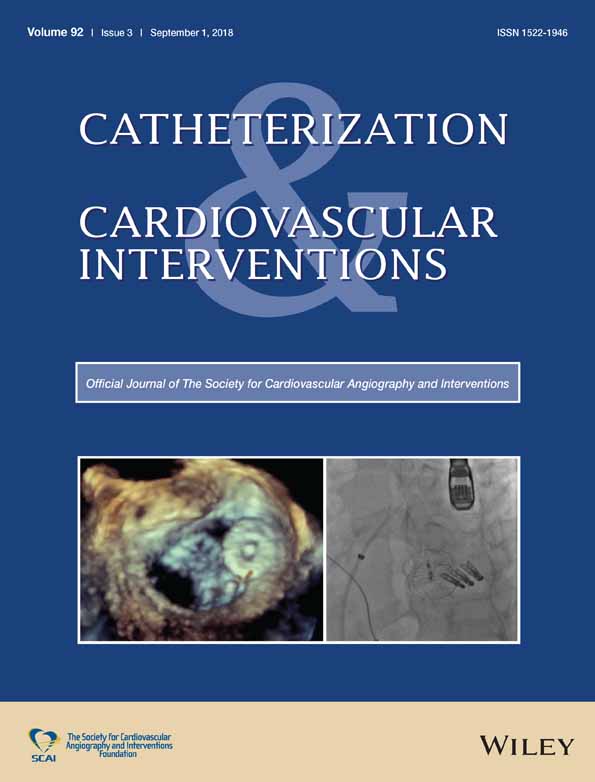Long-term outcomes after re-entry device use for recanalization of common iliac artery chronic total occlusions
Abstract
Objective
To examine the impact of re-entry device (RED) use on 1- and 5-year outcomes after endovascular treatment of common iliac artery (CIA) chronic total Occlusions (CTOs).
Background
There are not enough data regarding the long-term safety and efficacy of RED.
Methods
We performed a two-center retrospective study of 115 patients (140 lesions) undergoing CIA CTO endovascular intervention between 2006 and 2016. Baseline characteristics and long-term outcomes were described. A Cox proportional hazard model was developed to determine if REDs were associated with target lesion revascularization (TLR) or major adverse limb events (MALE) after 1 and 5 years.
Results
Among 140 lesions, 43 (31%) required use of a RED. The mean age was 63.9 years and the majority (n = 80) of patients were male. An antegrade crossing approach and treatment of restenotic lesions were less common in the RED group (10% vs. 29%, P < .05 and 0% vs. 21%, P < .05, respectively). There were no significant differences in Rutherford class, pre-procedure ABI, or patient presentation. The procedural complication rates were similar between the two groups. The 1- and 5-year TLR rates for lesions treated with re-entry device vs. standard approaches were 11% vs. 9%; P = 0.8 and 29% vs. 29%; P = 0.9 respectively. The 1 and 5-year MALE rates for lesions treated with re-entry device were 5% vs. 6%; P = 0.8 and 11% vs. 11%; P = 0.9 respectively.
Conclusions
This retrospective analysis found that recanalization of CIA occlusions using a RED is safe and is associated with long-term clinical outcomes similar to that of standard crossing techniques.
CONFLICT OF INTEREST
Relationships with Industry: Dr. Waldo receives research support to the Denver Research Institute from Abiomed, Cardiovascular Systems Incorporated and Merck Pharmaceuticals. Dr. Laird is a consultant/advisory board member for Abbott Vascular, Bard Peripheral Vascular, Boston Scientific, Medtronic, WL Gore and receives research support from WL Gore, Medtronic, Bard Peripheral Vascular. Dr. Armstrong is a consultant to Abbott Vascular, Boston Scientific, Cardiovascular Systems Incorporated, Medtronic, and Spectranetics.




